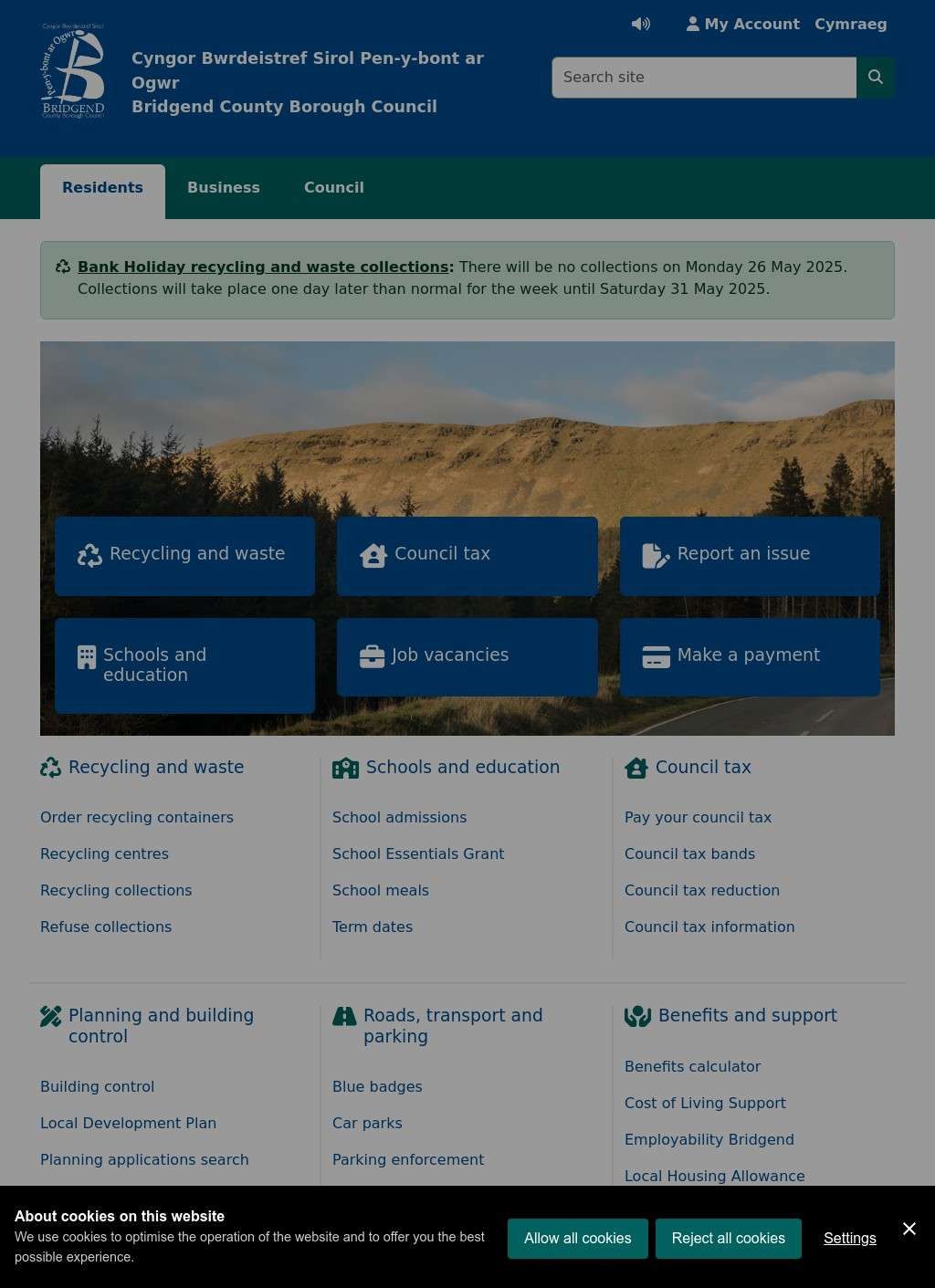Bridgend County Borough Council serves approximately 139,200 residents across 110 square miles of South Wales territory. Operating from the Civic Offices on Angel Street beside the River Ogmore, the council manages comprehensive local government services through 51 elected councillors representing 28 electoral wards. The authority formed in 1996 following Welsh local government reorganization, replacing the former Ogwr Borough Council.
The council delivers essential services ranging from household waste collection and recycling to complex social care provision for vulnerable adults and children. Education remains a core responsibility, overseeing schools throughout the borough while coordinating with further education providers. Planning applications, building control, environmental health, and licensing all fall within their regulatory remit. Housing services address homelessness prevention and social housing needs, with emergency support available 24/7 through their Customer and Community Support Unit.
Digital transformation shapes modern service delivery at Bridgend. The My Account portal enables residents to access council services online, from reporting issues to making payments. This personalized digital platform saves time and money while maintaining traditional contact methods for those preferring phone or in-person interactions. The council welcomes communications in both Welsh and English, reflecting Wales' bilingual culture.
Economic development efforts focus on regenerating town centers and supporting local businesses. Free Wi-Fi now covers town centers across the county borough, enhancing connectivity for residents, businesses, and visitors. The council actively promotes tourism through marketing campaigns highlighting attractions from Porthcawl's beaches to the rural valleys. Major infrastructure projects and business support programs aim to create employment opportunities while preserving the area's natural beauty.
Recent organizational changes reflect evolving governance approaches. Labour holds majority control with 26 of 54 seats following the 2022 elections. The council previously explored merging with neighboring Vale of Glamorgan Council in 2014, though Welsh Government rejected this proposal. Current strategic priorities balance service delivery pressures against budget constraints while addressing demographic changes and climate challenges.
Community engagement mechanisms ensure resident voices influence decision-making. Regular consultations on budget priorities and service changes demonstrate commitment to participatory democracy. The council's Armed Forces Covenant pledge recognizes military service members' contributions, ensuring fair treatment in accessing services. An ePetition system enables online campaigning on local issues.
Financial management presents ongoing challenges typical of Welsh local authorities. Council tax, business rates, and Welsh Government funding form primary revenue streams. The annual Pay Policy Statement provides transparency around staff remuneration. Capital investments in schools and infrastructure demonstrate long-term planning despite immediate budget pressures. The tender process for new Mynydd Cynffig Primary School exemplifies commitment to educational facilities.
Environmental responsibilities extend beyond basic services. The council manages country parks like Bryngarw, offering 113 acres of woodland, grassland, and recreational facilities. Climate action plans address carbon reduction targets while adapting to environmental changes. Sustainable development principles guide planning decisions, balancing economic growth with ecological preservation. Partnership working with neighboring authorities and Welsh Government ensures coordinated approaches to regional challenges facing this vibrant South Wales community.
